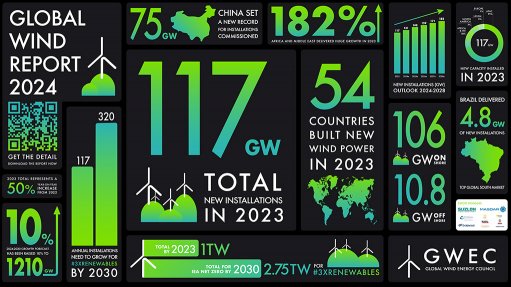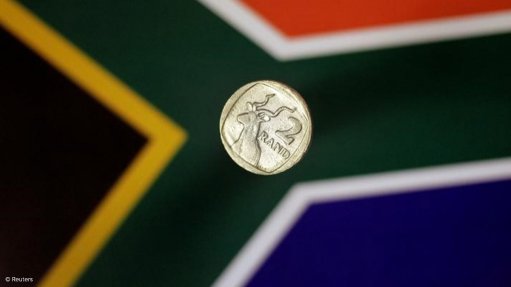Team work key to success in growing fleet
This article has been supplied as a media statement and is not written by Creamer Media. It may be available only for a limited time on this website.
Company Announcement - WHEN Lebo Joe Theko joined a giant biotechnology company Monsanto South Africa 25 years ago, it had a fleet of 20 vehicles. Little did the young procurement officer know then that the fleet would grow to ten times that number and, furthermore, that he would one day manage it. Mr Theko has seen the Monsanto fleet of mainly bakkies and SUVs grow exponentially as the company increased its reach to virtually every farming district in South Africa, no matter how remote. The company sells biotechnology products, most famously its genetically modified seeds, to farmers.
He has also seen the systems and methods of the company adapt to cope with the growing fleet as he worked his way up in the administration. Today, fleet management forms part of his job as national office manager. The biggest difference between running a small operation and a national, 200-vehicle fleet, says Mr Theko, is team work. A small fleet can be managed by one person, but a large operation requires a multi-party support system. This can be built inside a company, but in the case of Monsanto important functions were outsourced to outside partners, says Mr Theko. The most fundamental one is the fuel-purchasing control system. It has been outsourced to Standard Bank which has issued each vehicle with a Fleet Card for fuel purchases, maintenance and repairs. Mr Theko finds the sophisticated transaction authorisation system built into Standard Bank's Fleet Cards valuable. The system automatically declines transactions when it falls outside of certain customised parameters. If the fuel purchased exceeds the vehicle's tank capacity, for example, the transaction will be declined and the fleet manager notified.
Mr Theko remembers being notified once of a fuel purchase of 200 litres of diesel in the Free State, while the driver was actually at the head office in Johannesburg. The transaction, done with a cloned card, was declined and flagged immediately. Managed maintenance is another outsourced system that Mr Theko makes use of. For a monthly fee per vehicle, a call centre of mechanical experts vets and screens each repair and maintenance job before it is carried out to make sure that workshops do not bump up their bills with unnecessary work and inflated prices. Outsourcing the fuel purchasing and maintenance system does not mean Mr Theko gives up control over his fleet policy. Both of the systems allow him to specify strict rules about everything from fuel and tyre purchases to which mechanical workshops may be used. The education of the company's drivers about the fleet policy is an ongoing task, and every day he handles at least three or four calls from drivers who need to know more about some aspect of the fleet policy.
Monsanto's fleet policy has grown with the fleet. Mr Theko remembers a slim document with a few clauses in the early days. Today, it is a sizeable document specifying, among other things, the classes of vehicles that employees may buy and when they have to be traded in. About 170 out of the 200 Monsanto vehicles are chosen and bought by staff members who either use them as tools of their trade or get them as executive perks. The remainder are pool vehicles directly purchased by Mr Theko.
Tracking is an important part of Mr Theko's management of the pool vehicles. The fleet policy also specifies that each tool-of-trade vehicle must be tracked, but leaves the details up to the staff member who uses the car.
Mr Theko has learned that fleet management means constantly adapting to changing circumstances and growth. He expects further growth as Monsanto extends into Africa from its South African base. Mr Theko is already responsible for the purchasing of company vehicles in Kenya, Zambia, Malawi, and the business will be expanding into Tanzania, Burkina Faso and Nigeria.
This is likely to pose major challenges because electronic payment systems will not necessarily be able to extend to all markets across the border. Ironically, growth in this case may mean having to incorporate some old-fashioned cash transactions back into the system.
The next major step for Monsanto's fleet is to track all its fleet expenses in real time so as to better manage its fleet.Mr Theko also looks forward to being able to shed more of his duties as national facilities manager in order to focus solely on successfully growing the fleet even further.
Comments
Press Office
Announcements
What's On
Subscribe to improve your user experience...
Option 1 (equivalent of R125 a month):
Receive a weekly copy of Creamer Media's Engineering News & Mining Weekly magazine
(print copy for those in South Africa and e-magazine for those outside of South Africa)
Receive daily email newsletters
Access to full search results
Access archive of magazine back copies
Access to Projects in Progress
Access to ONE Research Report of your choice in PDF format
Option 2 (equivalent of R375 a month):
All benefits from Option 1
PLUS
Access to Creamer Media's Research Channel Africa for ALL Research Reports, in PDF format, on various industrial and mining sectors
including Electricity; Water; Energy Transition; Hydrogen; Roads, Rail and Ports; Coal; Gold; Platinum; Battery Metals; etc.
Already a subscriber?
Forgotten your password?
Receive weekly copy of Creamer Media's Engineering News & Mining Weekly magazine (print copy for those in South Africa and e-magazine for those outside of South Africa)
➕
Recieve daily email newsletters
➕
Access to full search results
➕
Access archive of magazine back copies
➕
Access to Projects in Progress
➕
Access to ONE Research Report of your choice in PDF format
RESEARCH CHANNEL AFRICA
R4500 (equivalent of R375 a month)
SUBSCRIBEAll benefits from Option 1
➕
Access to Creamer Media's Research Channel Africa for ALL Research Reports on various industrial and mining sectors, in PDF format, including on:
Electricity
➕
Water
➕
Energy Transition
➕
Hydrogen
➕
Roads, Rail and Ports
➕
Coal
➕
Gold
➕
Platinum
➕
Battery Metals
➕
etc.
Receive all benefits from Option 1 or Option 2 delivered to numerous people at your company
➕
Multiple User names and Passwords for simultaneous log-ins
➕
Intranet integration access to all in your organisation


















